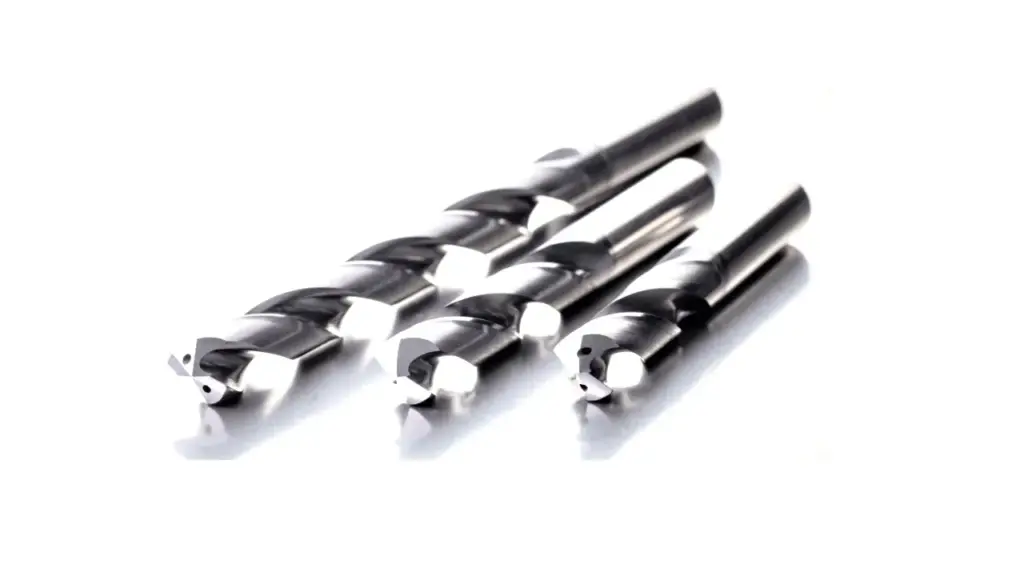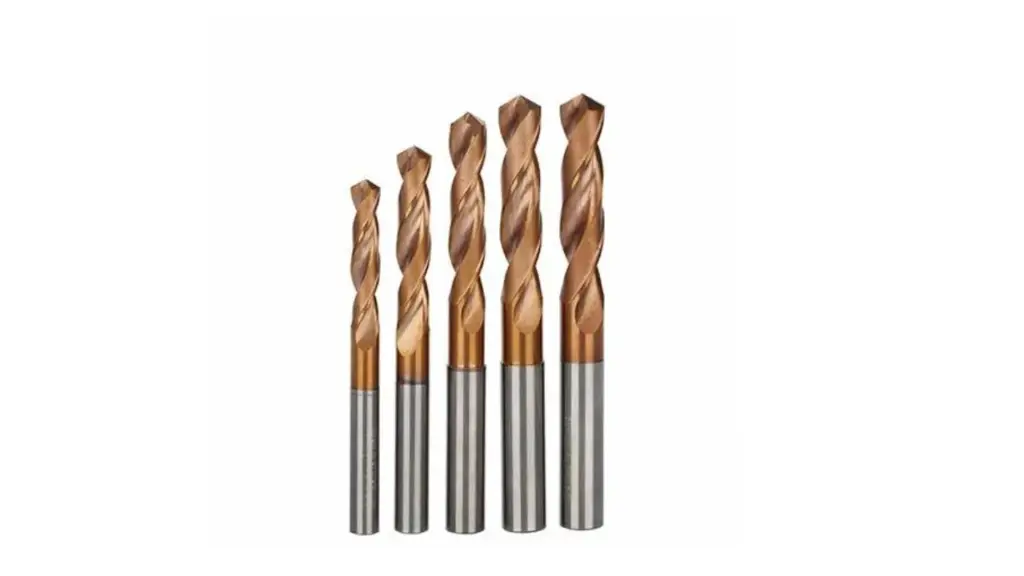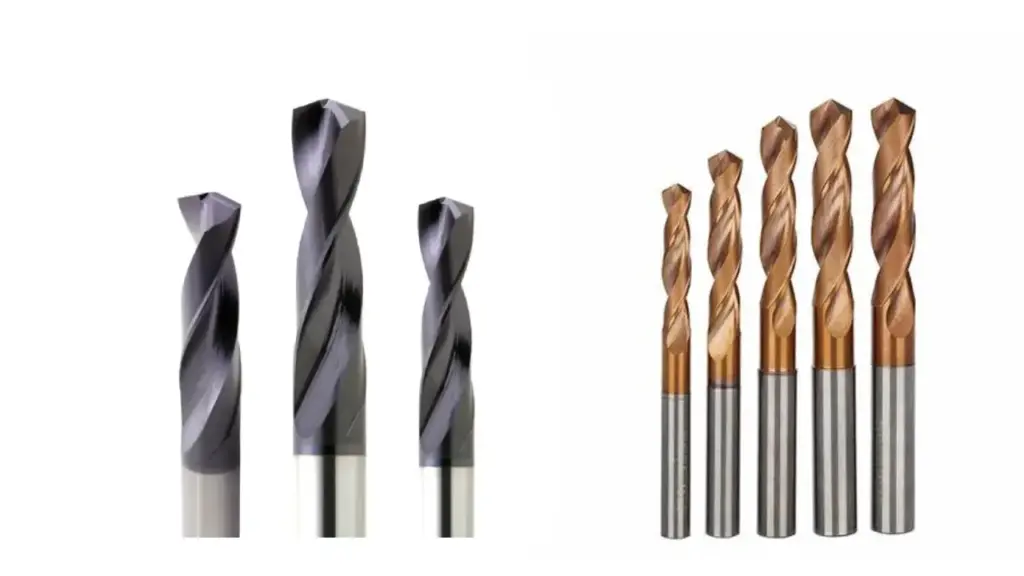When it comes to drilling exceptionally hard and abrasive materials, both carbide and tungsten drill bits are often mentioned, sometimes interchangeably. However, while both offer superior hardness compared to traditional steel bits, there are subtle yet significant differences in their composition and optimal applications. Understanding these distinctions is key to selecting the right tool for tasks ranging from drilling concrete to machining hardened alloys, ensuring efficiency and preventing tool damage.
This blog post aims to clarify the differences between carbide and tungsten drill bits, exploring their material composition, performance characteristics, and ideal applications. By highlighting their unique strengths and limitations, we’ll help you navigate the world of high-performance drilling and choose the best bit for your specific needs, whether you’re a DIY enthusiast or a seasoned professional.
What are Carbide Drill Bits

Carbide drill bits are characterized by their cutting tips or inserts made from extremely hard carbide, typically a composite material where tungsten carbide particles are bonded together with a metallic binder, often cobalt.
This material exhibits exceptional hardness and abrasion resistance, significantly surpassing that of high-speed steel (HSS). Consequently, carbide drill bits are specifically designed for drilling through very hard and abrasive materials such as concrete, ceramic tile, stone, fiberglass, composites, and even hardened steels, often requiring specialized drilling techniques like rotary hammering for masonry applications to effectively pulverize and remove the material.
What are Tungsten Drill Bits

While the term “tungsten drill bits” might occasionally be used informally, it most commonly refers to tungsten carbide drill bits. These drill bits feature cutting tips or inserts made from tungsten carbide, an exceptionally hard and wear-resistant compound composed of tungsten and carbon.
This material allows the drill bits to effectively bore through very hard and abrasive materials such as concrete, ceramic tile, stone, hardened steel, and composites, where standard high-speed steel (HSS) bits would quickly dull or fail. Their superior hardness enables them to maintain a sharp cutting edge for extended periods in demanding applications, often requiring specialized drilling techniques like rotary hammering for masonry.
What Are Tungsten Carbide Drill Bits Used For
Tungsten carbide drill bits, known for their exceptional hardness and wear resistance, are primarily used for drilling through very hard and abrasive materials. Their superior hardness allows them to maintain a sharp cutting edge for extended periods, making them ideal for tasks where standard high-speed steel (HSS) bits would quickly dull or fail. These bits are a go-to choice for professionals and DIYers alike when tackling challenging materials.
Drilling into Masonry and Ceramics
One of the most common applications for tungsten carbide drill bits is drilling into masonry materials such as concrete, brick, and stone. The robust nature of tungsten carbide allows these bits to effectively pulverize and penetrate these hard, brittle substances, often in conjunction with the hammering action of a rotary hammer drill. This makes them essential for construction, renovation, and tasks like installing anchors or running cables through walls.
Furthermore, tungsten carbide drill bits are highly effective for drilling through ceramic tiles, porcelain, and glass. Their hardness enables them to cut cleanly through the glazed surfaces without causing excessive cracking or chipping, which is crucial for achieving a professional finish in tiling projects or when working with delicate glass materials. Specialized carbide-tipped drill bits with specific geometries are often used for these applications to ensure optimal results.
Working with Hard Metals and Composites
While cobalt drill bits are often preferred for drilling tough metals, tungsten carbide drill bits, especially solid carbide variants or those with high-quality carbide tips, can also be used for drilling hardened steel, cast iron, and even some stainless steel alloys. Their extreme hardness allows them to cut through these materials, particularly in controlled, stable drilling setups. However, their brittleness requires careful operation to avoid chipping or breakage.
Additionally, tungsten carbide drill bits excel in drilling through abrasive composite materials like fiberglass and carbon fiber. These materials can quickly wear down standard HSS bits, but the superior wear resistance of carbide ensures a longer tool life and cleaner cuts. This makes them valuable in industries such as aerospace, automotive, and manufacturing, where working with advanced composite materials is common.
Carbide vs Tungsten Drill Bits

When it comes to drilling exceptionally hard and abrasive materials, both carbide and tungsten drill bits are often mentioned. However, the distinction between these terms can be a source of confusion. In the realm of drill bits, “carbide” almost universally refers to tungsten carbide as the primary cutting material due to its superior hardness and wear resistance.
Therefore, a comparison between “carbide” and “tungsten” drill bits is essentially an exploration of the nuances within tungsten carbide-based drilling tools, considering factors like composition and application.
Material Composition
The term “carbide drill bit” almost always implies that the cutting element is made of tungsten carbide. Tungsten carbide is a composite material consisting of tungsten and carbon atoms, typically in the form of very fine tungsten carbide particles bonded together by a metallic binder, most commonly cobalt. The specific ratio of tungsten carbide to the binder material, as well as the grain size of the tungsten carbide particles, significantly influences the hardness, toughness, and wear resistance of the resulting drill bit. Different grades of tungsten carbide are formulated to optimize performance for various materials and applications.
While “tungsten drill bit” might suggest a bit made entirely of pure tungsten, this is not practical for drilling applications. Pure tungsten is very brittle. Therefore, when someone refers to a “tungsten drill bit,” they are almost certainly referring to a drill bit with a tungsten carbide cutting tip or insert. These tips are often brazed or mechanically attached to a steel shank to provide the necessary strength and interface with the drill chuck. The composition of the tungsten carbide itself can vary, impacting its suitability for different materials.
Performance and Application
Tungsten carbide drill bits, due to their extreme hardness, excel at drilling through very hard and abrasive materials that would quickly dull high-speed steel (HSS) or cobalt bits. This includes materials like concrete, ceramic tile, stone, hardened steel, cast iron, fiberglass, and composites. Their rigidity allows for precise hole drilling with minimal wandering, especially in controlled environments. Depending on the specific grade of carbide and the bit design, they can be used with rotary, impact, or rotary hammer drilling actions.
The performance of a tungsten carbide drill bit is heavily influenced by the grade of carbide used. Finer grain carbides generally offer higher hardness and wear resistance, ideal for very abrasive materials. Coarser grain carbides tend to be tougher and more resistant to chipping, which can be beneficial in applications involving impact or vibration. Specialized geometries and coatings on the carbide tips further enhance performance for specific materials, such as those designed for clean holes in brittle materials like tile or efficient material removal in concrete.
| Feature | Tungsten Carbide Drill Bits (General) | Tungsten Carbide Drill Bits (Specific Grades) |
| Cutting Material | Tungsten Carbide (bonded with a metallic binder) | Various grades of Tungsten Carbide (differing grain size & binder ratio) |
| Hardness | Extremely High | Ranges from very high to exceptionally high depending on grade |
| Toughness | Relatively Lower (compared to Cobalt/HSS) | Varies; finer grain = higher hardness, lower toughness |
| Wear Resistance | Excellent | Varies; finer grain generally offers better wear resistance |
| Best For | Very hard, abrasive materials (concrete, tile, stone) | Optimized grades for specific hard materials (e.g., hard metals, composites) |
| Drilling Action | Rotary, Impact, Rotary Hammer (material dependent) | Tailored designs for specific drilling actions |
| Cost | Higher to Very High | Can vary based on grade and complexity |
How to Choose Carbide and Tungsten Drill Bits
Choosing between carbide and tungsten drill bits essentially involves selecting the right type of tungsten carbide drill bit for your specific needs. Since “carbide” almost always means tungsten carbide, the decision hinges on the material you intend to drill and the demands of the task. Consider the hardness and abrasiveness of the workpiece; for extremely hard materials like concrete, tile, and stone, a robust tungsten carbide bit with a suitable tip geometry is essential.
Furthermore, evaluate the drilling method and equipment you’ll be using. For rotary hammer drills used on masonry, choose carbide bits specifically designed for impact action. For precise drilling in brittle materials, opt for bits with geometries that minimize chipping. The cost and expected lifespan of the bit should also be factored in, balancing the initial investment with the long-term performance and durability required for your projects.
Consider these factors when selecting tungsten carbide drill bits:
- Material Hardness and Abrasiveness: Identify the specific material you will be drilling. For very hard and abrasive materials like concrete, tile, and stone, choose high-quality tungsten carbide bits with appropriate tip designs and grades optimized for these materials to ensure effective drilling and longevity.
- Drilling Method and Equipment: Determine whether you will be using a standard rotary drill, an impact drill, or a rotary hammer. Select carbide bits specifically designed for the intended drilling action to maximize efficiency and prevent damage to the bit or the workpiece, especially when drilling masonry.
- Desired Hole Quality and Precision: Consider the required precision and finish of the hole. For brittle materials like ceramic tile, opt for carbide bits with specialized geometries that minimize chipping and cracking, ensuring clean and accurate hole creation for your specific application.
- Cost and Expected Lifespan: Balance the initial cost of the tungsten carbide drill bit with its expected lifespan and performance for your specific drilling needs. Higher-quality carbide bits may have a higher upfront cost but can offer superior durability and performance in demanding applications, potentially proving more cost-effective in the long run.
Conclusion
In essence, “carbide drill bits” and “tungsten carbide drill bits” refer to the same type of tool. The term “carbide” in this context almost universally implies the use of tungsten carbide as the primary cutting material due to its exceptional hardness and wear resistance. Therefore, when considering these terms, you are essentially looking at the same category of high-performance drill bits designed for demanding applications.
These bits excel when drilling through very hard and abrasive materials like concrete, tile, stone, and hardened metals, where traditional high-speed steel bits would quickly fail. Their superior hardness allows them to maintain a sharp cutting edge for extended periods, providing efficiency and precision in challenging drilling tasks.
When sourcing wholesale drill bits from us, be aware that “carbide” and “tungsten carbide” are interchangeable in this context. Offering a range of these bits will cater to customers needing robust tools for masonry, tile work, and tough metal drilling, ensuring they have the right solution for their most demanding projects.


